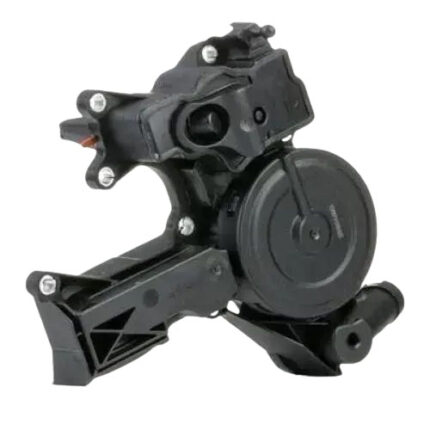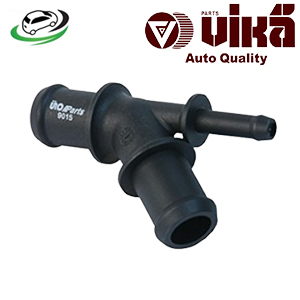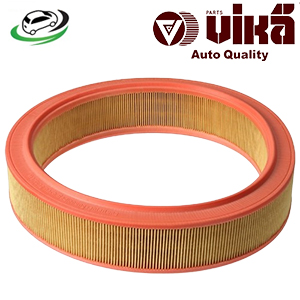-19%
Get Air Filter VW POLO 6N1/Mk3 1.0 94 to 99 32129620
The air filter is a crucial component in a vehicle’s engine system, designed to ensure that the engine receives clean air for combustion. By filtering out dust, dirt, debris, and other contaminants, the air filter plays a significant role in maintaining engine performance, efficiency, and longevity. This comprehensive guide will cover what an air filter is, how it works, its benefits, common issues, and maintenance tips.
What is an Air Filter?
An air filter is a component that prevents contaminants from entering the engine’s intake system. It is usually made from a pleated paper or foam material that is encased in a metal or plastic frame. The filter is installed in the air intake system, typically in a compartment near the engine or within the airbox. Its primary function is to clean the air before it mixes with fuel and enters the engine for combustion.
How Does an Air Filter Work?
The air filter operates through a simple yet effective filtration process:
- Air Intake: As the engine runs, it draws air through the intake system. The air filter is positioned in the path of this incoming air.
- Filtration: The air passes through the filter material, which captures and traps particles such as dust, dirt, pollen, and debris. The filter material is designed to have a large surface area and is pleated to increase its capacity to hold contaminants.
- Clean Air Delivery: After the air has been filtered, it flows through the clean side of the filter and into the intake manifold, where it is mixed with fuel and delivered to the engine for combustion.
- Contaminant Retention: The trapped particles remain within the filter material, preventing them from entering the engine and causing potential damage.
Benefits of a Properly Functioning Air Filter
A properly functioning air filter offers several important benefits for vehicle performance and maintenance:
- Improved Engine Performance: Clean air filters ensure that the engine receives a steady flow of clean air, which is essential for optimal combustion and performance.
- Increased Fuel Efficiency: By allowing clean air to enter the engine, the air filter helps maintain the correct air-fuel mixture, leading to better fuel efficiency and reduced fuel consumption.
- Enhanced Engine Longevity: Filtering out contaminants helps prevent engine wear and tear, reducing the risk of damage to internal components and extending the engine’s lifespan.
- Reduced Emissions: A clean air filter contributes to more complete combustion, which can help reduce harmful emissions and improve the vehicle’s environmental performance.
- Improved Acceleration: With a clean air filter, the engine can breathe more easily, leading to improved throttle response and acceleration.
Common Issues with Air Filters
Despite their importance, air filters can encounter several issues over time:
- Clogging: As the air filter captures contaminants, it can become clogged and less effective. A clogged filter restricts airflow to the engine, leading to decreased performance and efficiency.
- Tears or Damage: Physical damage to the air filter, such as tears or holes in the filter material, can allow unfiltered air and debris to enter the engine.
- Contaminant Saturation: Over time, the filter material can become saturated with contaminants, reducing its ability to capture additional particles and compromising its effectiveness.
- Improper Installation: If the air filter is not installed correctly, it may not provide a proper seal, allowing unfiltered air to bypass the filter and enter the engine.
Signs of a Failing Air Filter
Recognizing the signs of a failing air filter can help you address issues before they impact engine performance. Common symptoms include:
- Reduced Engine Power: If you notice a decrease in engine power or acceleration, it could be due to a clogged air filter restricting airflow.
- Poor Fuel Economy: A clogged air filter can lead to inefficient combustion and reduced fuel economy, resulting in higher fuel consumption.
- Engine Misfires: Contaminants entering the engine due to a damaged or improperly installed filter can cause engine misfires or rough running.
- Increased Emissions: A failing air filter may contribute to higher levels of exhaust emissions due to incomplete combustion.
- Check Engine Light: In some vehicles, a clogged or damaged air filter can trigger the check engine light, indicating a potential issue with the air intake system.
Maintenance and Replacement
Regular maintenance and timely replacement of the air filter are essential for ensuring optimal engine performance and efficiency. Here are some maintenance tips:
- Regular Inspections: Check the air filter regularly for signs of dirt, dust, or damage. Most manufacturers recommend inspecting the air filter at least once every 12,000 to 15,000 miles or as part of routine maintenance.
- Replacement Intervals: Follow the manufacturer’s recommended replacement intervals for the air filter. Depending on driving conditions and environment, the filter may need to be replaced more frequently.
- Cleaning (if applicable): Some air filters, such as reusable or washable filters, can be cleaned and reused. Follow the manufacturer’s instructions for cleaning and reusing these filters.
- Proper Installation: Ensure that the air filter is installed correctly and securely. An improperly installed filter can allow unfiltered air to bypass the filter and enter the engine.
- Use Quality Parts: When replacing the air filter, use high-quality filters that meet or exceed the manufacturer’s specifications. Avoid using generic or inferior-quality filters that may not provide adequate protection.
Replacement Procedure
Replacing the air filter is a relatively straightforward process that can typically be done with basic tools. Here’s a general outline of the replacement procedure:
- Preparation: Ensure the engine is cool and the vehicle is on a level surface. Open the hood and locate the air filter compartment or airbox.
- Remove the Air Filter Cover: Depending on the vehicle, you may need to remove screws, clips, or bolts securing the air filter cover. Carefully remove the cover to access the air filter.
- Remove the Old Filter: Take out the old air filter from the compartment. Note the orientation and position of the filter to ensure proper installation of the new one.
- Install the New Filter: Place the new air filter into the compartment, ensuring that it fits snugly and correctly in the designated position. Replace the air filter cover and secure it with the appropriate screws, clips, or bolts.
- Check for Proper Sealing: Ensure that the air filter cover is properly sealed and that there are no gaps or leaks around the filter.
- Close the Hood: Once the new air filter is installed and the cover is securely in place, close the hood and check the engine for any unusual noises or performance issues.
Follow us on Facebook for more parts.



